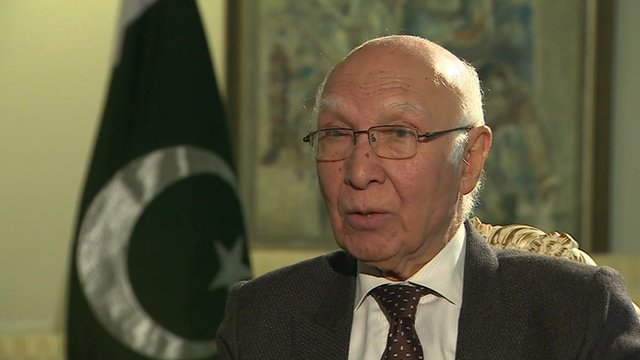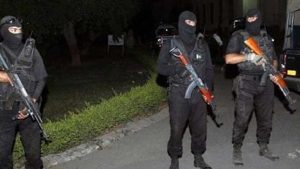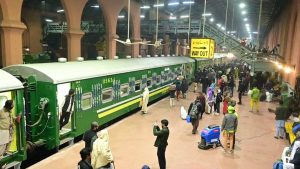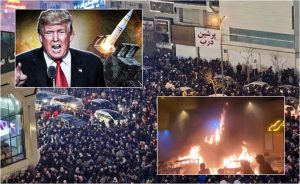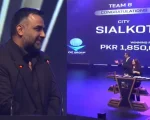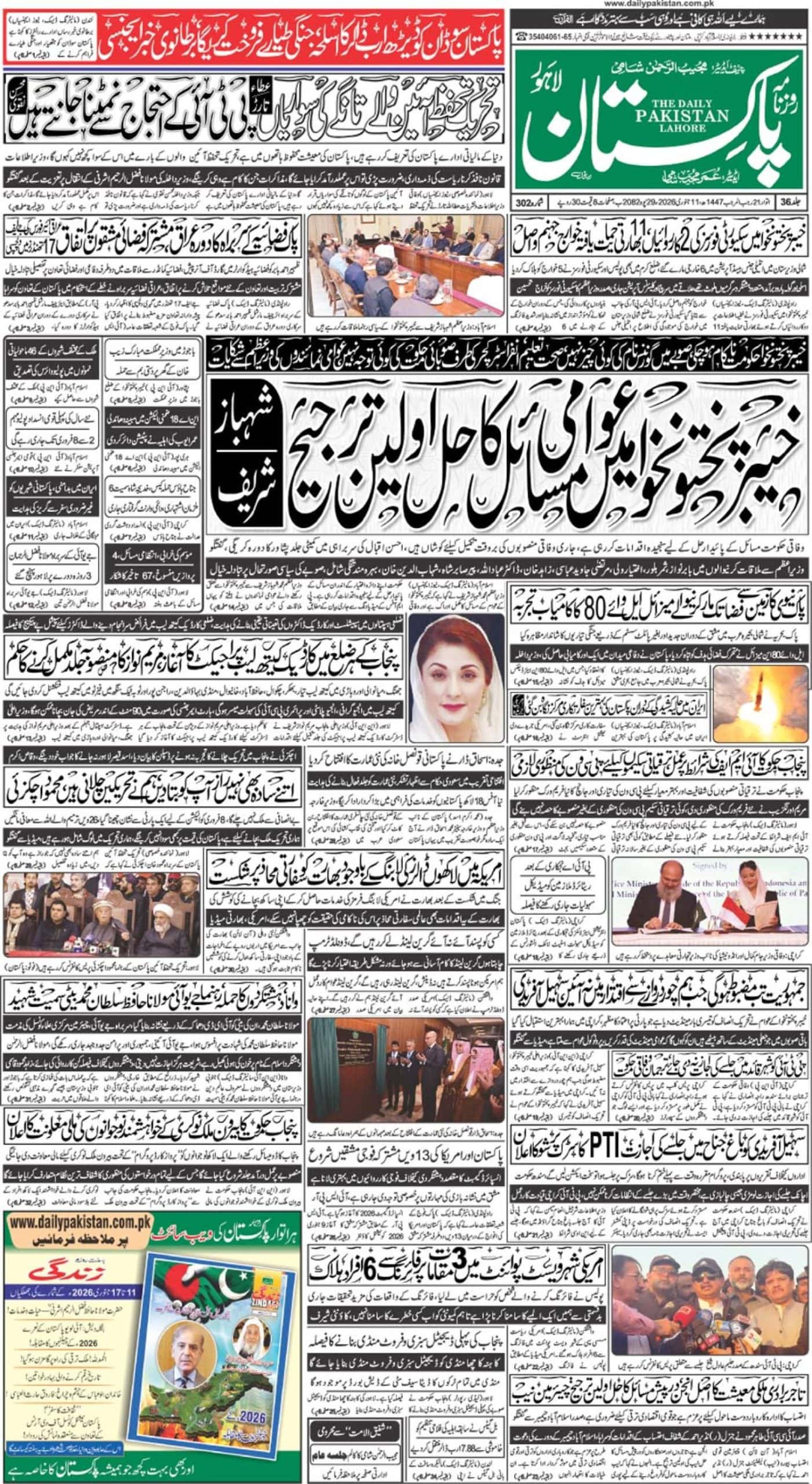ISLAMABAD (Web Desk) – A few days after Indian foreign secretary’s visit to Islamabad, Sartaj Aziz, the prime minister’s adviser on foreign affairs and national security said on Friday the recent talks between Pakistan and India did not bring breakthrough, but it did open a path to future dialogue over the various bilateral issues.
Interacting with a group of reporters after book launching ceremony of General (retd) Abdul Majeed, Aziz however said there was no date fixed for the next round of talks.
About the Chinese president’s expected visit, he said he might not be able to Pakistan day parade on March 23, but he would visit Pakistan momentarily. He told the media the schedule for the trio was being discussed through diplomatic channels between the two countries.
Pakistan has raised concerns with India over violation of the ceasefire agreed in 2003, and its involvement in strife-stricken Balochistan and Tribal Areas.
Indian Foreign Secretary Subrahmanyan Jaishankar touched down in Islamabad Tuesday morning in connection with his two-day ‘SAARC Yatra’ and discussed the upcoming regional summit and other issues with his Pakistani counterpart.
“We have asked India to operationalise the available channels, such as flag meetings, to avoid violations at the Line of Control (LoC) and Working Boundary,” Pakistan Foreign Secretary Aizaz Chaudhry told a group of reporters following his meeting with his Jaishankar.
“Pakistan has reaffirmed its commitment to follow the ceasefire treaty that was agreed in 2003 between the two countries,” Chaudhry said after the hours-long meeting.
In response to a media query, he said, “Although it cannot be taken as proper resumption of the talks process, we did discuss the various issues that would help achieve an advancement.”
The Indian side has been informed about Pakistan’s concerns over Indian involvement in Federally Administrated Tribal Areas and Balochistan, he said, adding, “We also exhorted India to exchange the progress on investigations into the Samjhota Express incident.”
Chaudhry, to another question, explained that the Indian foreign secretary was on his exploration visit of the whole region, but this meeting has, at least, helped the either side discuss the deposed issues.
The foreign secretary told the media that the two sides have agreed to strengthen their friendly relations by promoting peace along the border, enhancing economic cooperation, and widening people-to-people contact as well as friendly exchanges.
When asked about the next round of peace talks to arrive at a conclusion, Aizaz Chaudhry said, “We have not yet decided about the next meeting where we discuss the bilateral ties.”
He further said the two nuclear powers have agreed to promote ‘religious tourism’ in order to discourage the hostile attempts aimed at derailing the peace process.
About the upcoming regional summit, Chaudhry said Pakistan wanted enhanced cooperation among the SAARC countries and was strongly committed to eradicate terrorist elements.
Earlier, Indian foreign secretary termed the meeting as ‘constructive and positive’, saying, “We agreed to work together, find common grounds and narrow the differences.” Jaishankar demanded the Pakistani government take Mumbai attacks to its logical conclusion.
“Pakistan will be the next South Asian Association for Regional Cooperation (SAARC) host and that India would like to work with Pakistan to help SAARC achieve its potential,” he went on to say.
According to Pakistan’s Foreign Ministry, Kashmir, Siachen, and Sir Creek were also on the agenda.
Pakistan and India had last held the formal round of talks on September 8, 2012 which saw the then Foreign Minister Hina Rabbani Khar coming to table with her Indian counterpart SM Krishna.
Since then, efforts were made several times to hold the next round of talks but in vain.
Meanwhile, former foreign minister Hina Rabbani Khar summed up the Indian foreign secretary’s visit as “talks about talks”.
“The current talks are held under the shrouds of the ‘Saarc Yatra’ and are largely unhelpful to the dialogue process.”
“Look at the irony, in 67 years, we cannot even agree on what kind of dialogue to hold,” the former foreign minister said.
“Narendra Modi’s government has been overly cautious about India-Pakistan relations. To the extent of being scared,” Khar said.
“In the past one year, Modi’s government has only given in to the constituency of hate mongers and they have encouraged an environment of hostility.”

